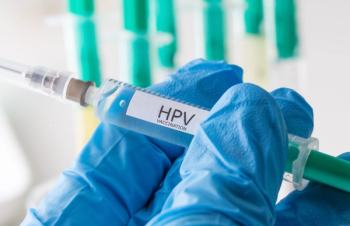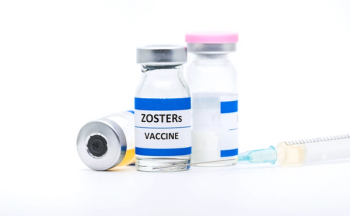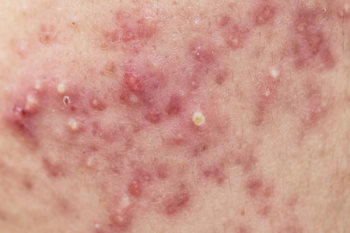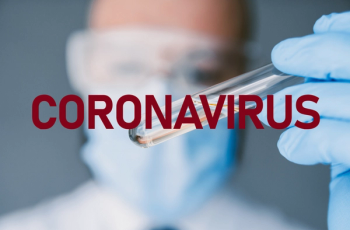
The results of a new study show that exposure to the viruses produces a protective ‘universal coronavirus’ memory.

The results of a new study show that exposure to the viruses produces a protective ‘universal coronavirus’ memory.

The investigators said that even patients with asthma showed no statistically significant deterioration in lung function, although there was a trend toward slightly lower measurements for the amount of air they could exhale forcibly in 1 second.

Bleeding in the upper GI tract is among the most common bleeding complications following acute myocardial infarction, causing considerable suffering and increasing the risk of death.

This drug class works by interfering with the ability of cancer cells to repair themselves after experiencing damage to their DNA, but how PARP inhibitors selectively kill cancer cells was previously unknown.

The results of a new study show that immunizations may help prevent malignancies in individuals aged 36 to 45 years.

Ulcerative colitis affects the innermost lining of your large intestine and rectum.

The results of a study show that with proper antibiotic treatments and therapy, clinical outcomes for those with community-acquired pneumonia do not differ.

Study results show that these personalized treatments adjust based on cerebral function through electric pulses.

Investigators find a precision medicine that can identify those with the rare disorder who may benefit from FDA-approved siltuximab.

From an economic perspective, C. difficile has a staggering financial impact on the US health care system, as well on the patients infected.

In a study, 92.5% of patients treated with the 6-month regimen of Invega and 95% of patients treated with the 3-month regimen were relapse-free at 12 months.

Diabetic kidney disease develops in nearly 40% of patients with diabetes and serves as the leading cause of chronic kidney disease worldwide, according to the study.

RSV is defined as a seasonal illness that starts in the fall months and peaks during the winter when other respiratory illnesses are more common.

As specialty drugs move through clinical trials and preparations for commercialization begin, significant attention is warranted to this process considering the massive investments that would have been already made in the product up to this point.

Unlike other medications for chronic idiopathic constipation, prucalopride works by enhancing colonic peristalsis to increase bowel motility.

Treatment-emergent serious adverse events were reported more frequently in patients with PVD, which was likely due to their more advanced disease, according to the researchers.

Ten quiz questions to assess your knowledge on common symptoms and treatments for shingles.

During the trial, the research team wanted to look at aggressive B cell lymphomas and the outcomes comparing white patients versus minorities.

Psoriasis is a common, long-term chronic disease with no cure that goes through cycles, flaring for a few weeks or months, then going into remission.

Guarding against external air pollution while reducing the risk of infection when driving presents a challenge.

Peter Koshland, PharmD, CEO of Koshland Pharm and a practicing pharmacist, discusses whether the process may be similar in the future in terms of compounding pharmacies’ role in the administration of psychedelic drugs like psilocybin.

Harry Webster, RPh, a registered pharmacist at Walgreens and a member of the LGBTQIA+ community, discusses the impact of stigma associated with PrEP and HIV on patients seeking to treat or prevent HIV.

Michael Ganio, PharmD, MS, BCPS, FASHP, Senior Director of Pharmacy Practice and Quality at the American Society of Health-System Pharmacists, discussed the recent strains for hospitals due to the newest wave of COVID-19.

Convalescent plasma, IVIG, and remdesivir have successfully helped immunocompromised patients recover from the virus.

Irritable bowel syndrome is the term for symptoms that occur when the contents of the large intestine move too quickly or too slowly.

The results of a new study show that stopping jailing individuals may be linked to benefits to community-wide and global public health.

Peter Koshland, PharmD, CEO of Koshland Pharm and a practicing pharmacist, discusses how compounding pharmacies manage quality assurance when putting together ketamine dosages for patients.

The nasal spray bypasses the gut and potential absorption issues associated with it, and offers consistent relief even when administered hours after the onset of a migraine attack.

New evidence shows that moving to urban areas in the Midwest or either coast could increase the longevity of an individual’s life.

Research shows that individuals who had either a severe or mild case of the virus had an increased risk of kidney damage and disease.